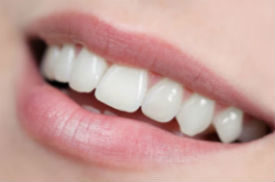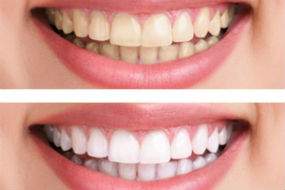Call: (334) 774-5952
General Dentistry
Dental Exam

There's nothing to fear with a dental exam. Your teeth will be visually examined for signs of plaque, tartar and tooth decay. Your gums will also be examined for puffiness or discoloration, which are signs of gum disease. A full set of dental X-rays may also be taken during your dental exam, to enable your dentist to see below the surfaces of your teeth. Dental exams typically end with a dental cleaning, to remove surface stains and buildup.
Digital Dental X-Rays
Dental X-rays have come a long way. Todays dental X-rays are safer, faster, more comfortable and more informative than the X-rays of years past. Digital X-rays, one of the latest and most advanced dental technologies, produce high-quality images of your teeth that can be viewed instantly by you and your dentist on a LCD monitor. Digital X-rays reduce radiation by up to 90% and provide exceptional diagnostic information to ensure that potential problems are caught in their earliest stages. Intraoral photography is another alternative to traditional dental X-rays. With intraoral photography, problems such as cavities, fractures and discolorations in the teeth are captured through clear and sharp photographic images that are taken with a 35mm or digital camera.
Teeth Cleaning

A laser teeth cleaning, also known as an ultrasonic cleaning, is a popular alternative to traditional teeth cleanings. With a laser teeth cleaning, an ultrasonic scaler (rather than a manual probe) is used to remove deposits, kill harmful microbes and eliminate bacteria around the teeth and gums through high-frequency sound waves. Many patients find laser teeth cleanings more comfortable than traditional teeth cleanings because they are quicker, quieter and pain-free.
A deep cleaning may be recommended if excessive plaque and tartar deposits have developed below the gum line. Deep cleanings, also known as scaling and root planing, involve a two-part process: first, the stubborn deposits are removed, and then the root surfaces are smoothened. A deep cleaning helps prevent periodontal disease and restores gum tissues to a healthy state.
Oral Cancer Screening
Oral cancer affects nearly 35,000 Americans every year. The keys to surviving oral cancer are early detection and early treatment. This starts with a regular oral cancer screening – at least once every six months. An oral cancer screening takes just minutes, is pain-free and can be performed during regular dental exams. If you are male, a regular oral cancer screening is especially critical: Oral cancer is more than twice as common in men as it is in women. Other people at high risk of oral cancer include people over the age of 60, tobacco smokers and heavy drinkers.
Tooth-Colored Fillings

Sealants
Decay starts early in life, so dental sealants are generally placed on your teeth at a young age.
The first set of permanent molars usually erupts by age 6. Sealing these chewing surfaces soon after will help keep them healthy and protect them from cavities. Much later, second molars erupt during the rapid growth spurts of teenagers. These molars are just as vulnerable as the first, and the typical teenager will subject them to excessive sugar. The sooner these chewing surfaces can be sealed, the better.
Although dental sealants are usually applied early in life, adults at high risk of developing decay can also benefit from receiving them. Consult with your dentist to determine if tooth sealants are right for you.
Teeth Whitening

Root Canals
Root canals get a bad wrap. But don't believe the rumors; the dreaded root canal isn't dreadful at all! Root canals are needed when either decay or an injury infects the inner tooth (the pulp). In the earliest stages of infection, you may not feel any pain at all. But when it progresses, you could have a toothache and swelling, or a dental abscess might form. Root canals remove the infection and prevent it from spreading. Thanks to laser root canals, this process is faster, more comfortable and, in many cases, more thorough than conventional root canals. Pulp capping is an alternative to root canals that are used when the infection has yet to penetrate the pulp. Pulp capping can also prevent a large dental filling from getting too close to the nerve.
Limited Oral Surgery

Limited TMJ Treatment
If you've been living with persistent jaw pain, ear pain and headaches, you could have TMJ – temporomandibular jaw disorder. TMJ can often be traced back to an improper bite, misaligned jaw joints, or an injury to the jaw or face. TMJ treatment from a dentist can relieve the discomfort. Although TMJ treatment varies from patient to patient, it typically involves one or several procedures, including the use of an orthotic splint, enamel reshaping, dental crowns, dental braces or night guards. The goal of TMJ treatment is to stabilize your bite so that your teeth, jaw muscles and jaw joints work properly together without strain – and without pain!
Oral Conscious Sedation

There are different levels of sedation to accommodate every patient. Minimal sedation involves inhaling nitrous oxide (“laughing gas”). Nitrous oxide helps you relax and wears off quickly. Electronic anesthesia is an alternative form of mild sedation that uses electronic impulses to help you relax. Conscious sedation is a moderate level of sedation that causes drowsiness and is taken in pill form. IV deep sedation is typically administered intravenously and works very quickly. With IV deep sedation, most patients fall asleep but can be easily awakened. Total sedation could be the only solution for people with an intense fear or phobia of dentistry. With total sedation, or general anesthesia, you are completely unconscious and cannot be easily awakened.
Limited Pediatric Dentistry
Catering to the dental needs of kids requires a special touch. Pediatric dentists are specially trained to treat the oral health needs of children, from infancy through their teenage years. This involves in-depth knowledge about children's behavior, as well as their growth and development. Pediatric dental offices are also designed to make kids feel comfortable and relaxed – with plenty of toys, activities and a warm, inviting and fun décor.